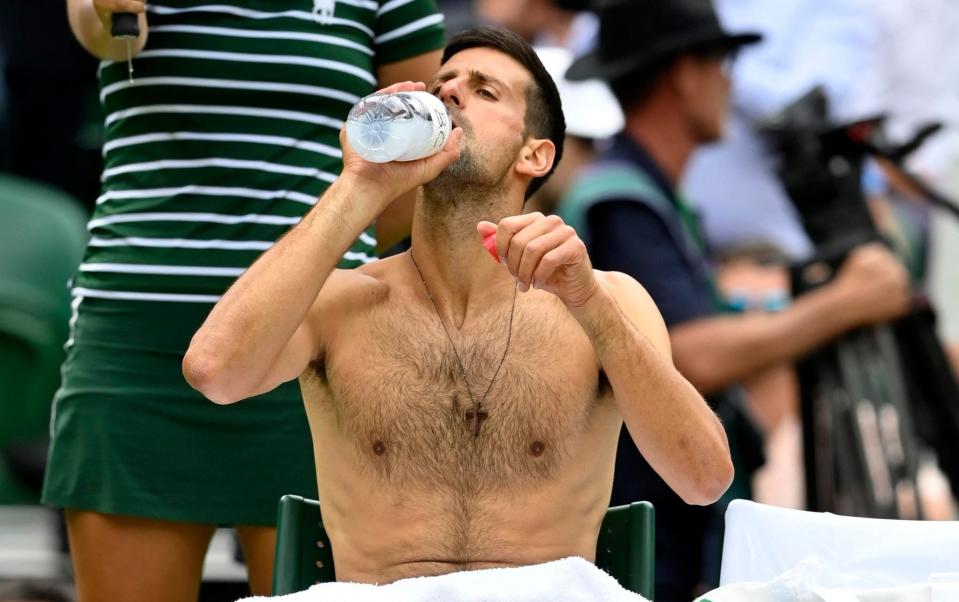What is Novak Djokovic inhaling inside his mystery drinks bottle?

The mystery around Novak Djokovic "inhaling" the contents of a bottle at Wimbledon appears to have been explained by a new craze of players eating unmixed energy powder.
Semi-finalist Djokovic sparked confusion during his last-16 defeat of Tim van Rijthoven when he gestured towards his box, pointed at his bottle and then squeezing it upwards to his mouth.
He did the exact same thing at the Australian Open in 2020, but when asked what was in the bottle, he joked: "The liquids were magic potions that my physio prepares in his lab."
Sources at the All England Club said there was nothing to suggest anything untoward was taking place. Other senior tennis sources also dismissed any suggestion of doping as they said it instead appeared to be an unmixed energy drink or isotonic powder.
"You wouldn't really get any benefit from doing it mid-match, but I'm sure this is isotonic," said the source. "A lot of players have started eating powder, even pre-workout isotonic powder. They've started eating it without water. It's mainly pre-workout stuff because it gives them a buzz. I imagine it's disgusting in the throat. It's weird, but it's what they are doing."
I would very much like to know what was in this bottle. It certainly wasn’t liquid, and he gestured to his coach before inhaling it. Very odd. pic.twitter.com/bBG62BOMFh
— Damian Reilly (@DamianReilly) July 5, 2022
Mixed isotonic sports drinks generally contain 40 to 80g of carbohydrate per litre, which is the same osmolarity as body fluids and can be an effective way to rehydrate.
Djokovic, the most high-profile athlete to openly refuse Covid-19 vaccination, also often eats dates mid-match to keep his energy levels up. The Serb is so diet-obsessed that he has spoken of only allowing himself a square of chocolate after he wins.
Four years ago, the 35-year-old converted to a gluten-free diet, saying it helped him become a "different man" within 18 months. "My life changed because I had begun to eat the right foods for my body, in the way that my body demanded," he has said. Djokovic's diet is based on vegetables, beans, white meat, fish, fruit, nuts, seeds, chickpeas, lentils and healthy oils.

